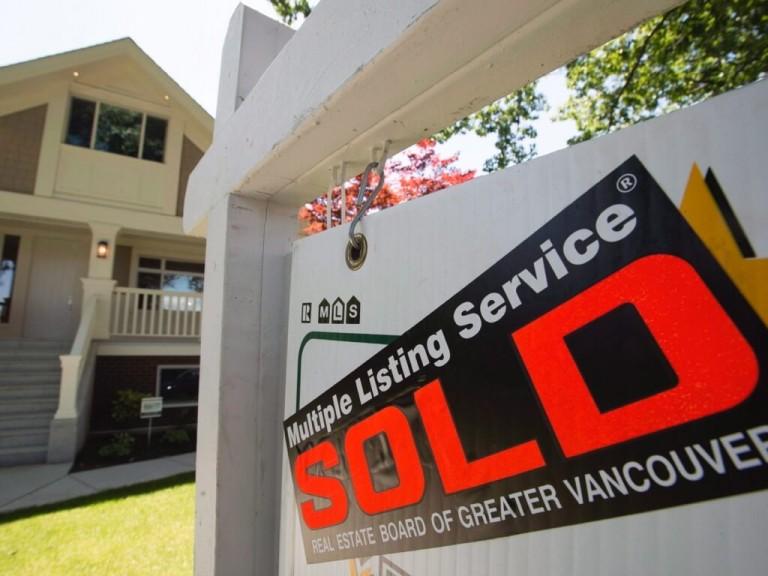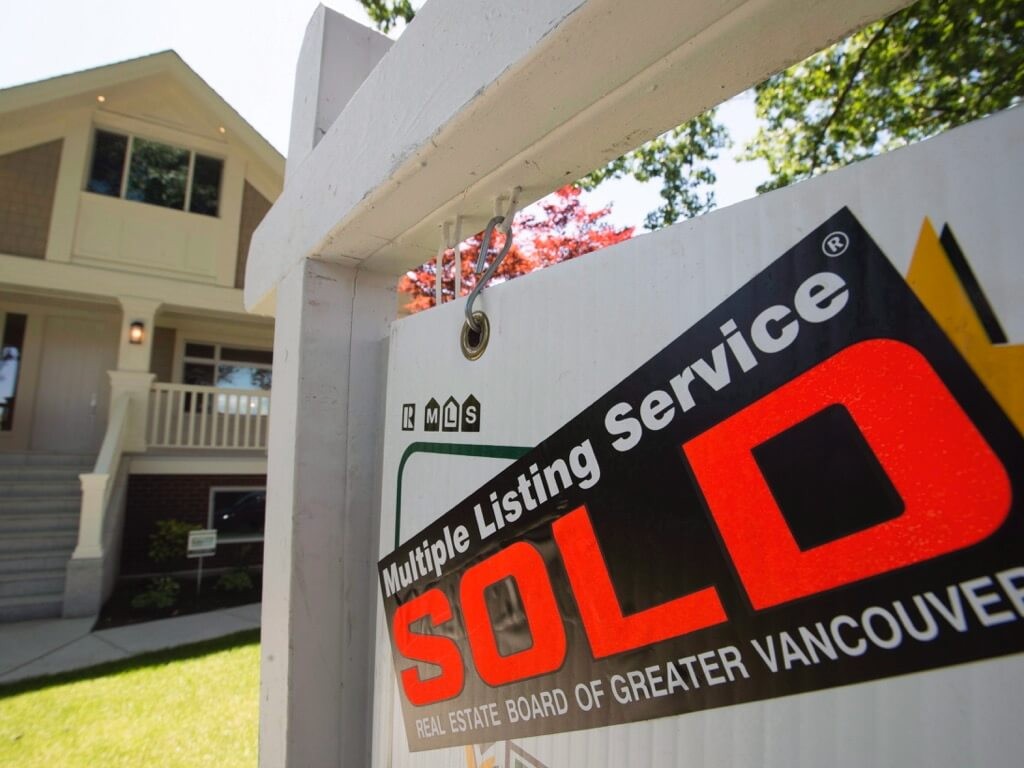B.C. is desperate to keep its housing bubble aloft. It won’t work.
Canada’s household debt is at record highs and a reckoning is coming. B.C.’s offer to further burden the most vulnerable borrowers will surely backfire

(Jonathan Hayward/CP)
Share

This story first appeared at Canadian Business.
The cynics said this would happen.
Not the election of Donald Trump as president of the United States; only nihilists saw that one coming. I’m talking about the prediction that politicians would absorb none of the lessons of the financial crisis. Here in Canada, amnesia is setting in.
The initial sign came in the 2015 federal election campaign, when former prime minister Stephen Harper attempted to revive his popularity by promising to allow first-time homebuyers to use more of their tax-sheltered savings for down payments.
At the end of October, Finance Minister Bill Morneau declared that he would maintain responsibility for deflating asset-price bubbles, even though it is widely accepted that those types of decisions should be made at a far greater distance from politics than the office of a cabinet minister. And now, British Columbia Premier Christy Clark has defied economic wisdom, announcing on December 15 that her government will offer first-time homebuyers concessional loans of as much as $37,500 to help them enter the country’s most expensive housing market. “There are people in my community today who could afford a condo or a townhouse who just don’t have the downpayment,” Rich Coleman, the province’s housing minister, told Business News Network.
In some places, the inability to come up with a down payment means you can’t afford to buy a house, but never mind that. Coleman represents Fort Langley-Aldergrove, a constituency in the Greater Vancouver Area, where the average price of a home is around $1 million. Tens of thousands of words have been been typed this year documenting how normal people can no longer buy a place to live in Canada’s third-largest metropolitan area. The pressure to act must be immense, especially with an election scheduled by law for May 9, 2017. “Owning the place where you live is part of what being a Canadian is all about,” Clark said as she explained her new policy.
If all this sounds familiar, it may be because you read about how America lost its mind over real estate on the way to the Great Recession. Democratic and Republican politicians spent years skewing the housing market, all in the name of the “American dream.” Owning the place where you live was what being American was all about. In 1995, Bill Clinton set a goal of raising the homeownership rate to 67.5% from 64%, and chose to get there by cajoling banks into loosening their lending standards. The administration of George W. Bush fetishisized an “ownership society,” which is probably why his administration failed to appreciate the fragility of a system that granted loans to unemployed people who had neither income nor collateral.
One of the best books about the financial crisis is Raghuram Rajan’sFault Lines: How Hidden Fractures Still Threaten the World Economy, published in 2010. One of Rajan’s fractures was household debt. A steady decline in factory jobs, stagnant wages and growing income inequality through the 1990s and into the 2000s showed the middle class was in trouble. America’s leaders should have responded with structural changes, such as reducing the cost of education. Instead, Rajan argues, politicians responded to voters’ desire for material success by designing policies that encouraged Americans to borrow against their futures to live large in the present. It is a an approach that assumed not only steady economic growth, but economic growth that distributes gains widely. That didn’t happen. When the housing bubble burst, there was no safety net. The forces that led to Trump’s successful campaign this year were triggered years ago, by feckless politicians who failed to think clearly about what they were doing.
Canada resembles the pre-crisis America that Rajan describes. The homeownership rate is 69%, about where the U.S. rate was when the market crashed in 2007. Total household credit topped $2 trillion for the first time in the third quarter, pushing the ratio of debt to disposable income to a record 167%, according to Statistics Canada. Personal debt is rising faster than household income. The Bank of Canada says the level of household indebtedness has left the country vulnerable to a shock, just as the U.S. was in 2008 when the investment bank Lehman Brothers collapsed. Canada’s banks are solid, but its economy isn’t: gross domestic product will do well to expand 1% in 2016. Even if the worst-case scenario is avoided, all that debt still will weigh on Canada’s near-term fortunes: the household savings rate jumped in the third quarter, suggesting Canadians are becoming less inclined to spend. Perversely, a shift to prudence could become the shock that bursts the bubble. In a speech on November 30 in Vancouver, Evan Siddall, the head of Canada Mortgage and Housing Corp., tutored his audience on “negative demand externalities.” Siddall remarked on Canadians’ “notable history” of making their mortgage payments. “However, this discipline of reducing spending to save a home can still harm our economy,” he said. “Housing market bubbles fuelled by easy credit tend to burst first when people slow their consumption, which undermines economic growth.”
British Columbia’s premier said she recognizes that debt is an issue. Still, Clark said that she and her officials don’t think their sop to homeowners will cause additional harm. Here’s a partial list of the economists who disagree: Tsur Somerville and Thomas Davidoff of the University of British Columbia; Andy Yan of Simon Fraser University; and Rob Gillezeau of the University of Victoria. After constraining demand with a tax on international purchases of Vancouver real-estate, Clark’s newest initiative will put upward pressure on prices: Every rational seller in British Columbia just has added $37,500 to his or her asking price. So if Clark succeeds in getting more people into a home, she likely will have done so by saddling them with bigger mortgages than they might have had otherwise. The winners stand to be sellers and real-estate agents, not buyers.
There is more to dislike. New research suggests that we voters are poor at seeing what is best for us. We get upset about surging home prices, and then get even more upset when local politicians start talking about loosening constraints on development to increase supply. We cling to romantic notions about home ownership, ignoring the math on what we would be worth if we had used our down payments to buy shares Tesla Motors Inc. in late 2010. We nod in agreement when real-estate brokers warn that mortgage restrictions will hurt the economy, unaware that Canada now spends vastly more on real-estate commissions and transfer costs than it does on research and development.
So it is unfair to take holier-than-thou tones when criticizing politicians for carrying out the bad ideas that we foist on them. Still, that same research—by Ernesto Dal Bó of the University of California, Berkeley; Pedro Dal Bó of Brown University; and Erik Eyster of the London School of Economics—suggests that voters can be persuaded that direct benefits, such as concessional home loans, could ultimately hurt them if those benefits end up changing behaviour and destabilizing the economy.
British Columbia home prices had begun to fall, in part because of persistent warnings from officials such as Siddall and Bank of Canada Governor Stephen Poloz, and in part because of new regulations and taxes aimed at curbing demand. Voters were starting to get the message that there is more to life than owning an overpriced house. And now Christy Clark has come along and confused matters. Her policy exacerbates the biggest threat to Canada’s economy because the voters of British Columbia probably won’t see it that way.